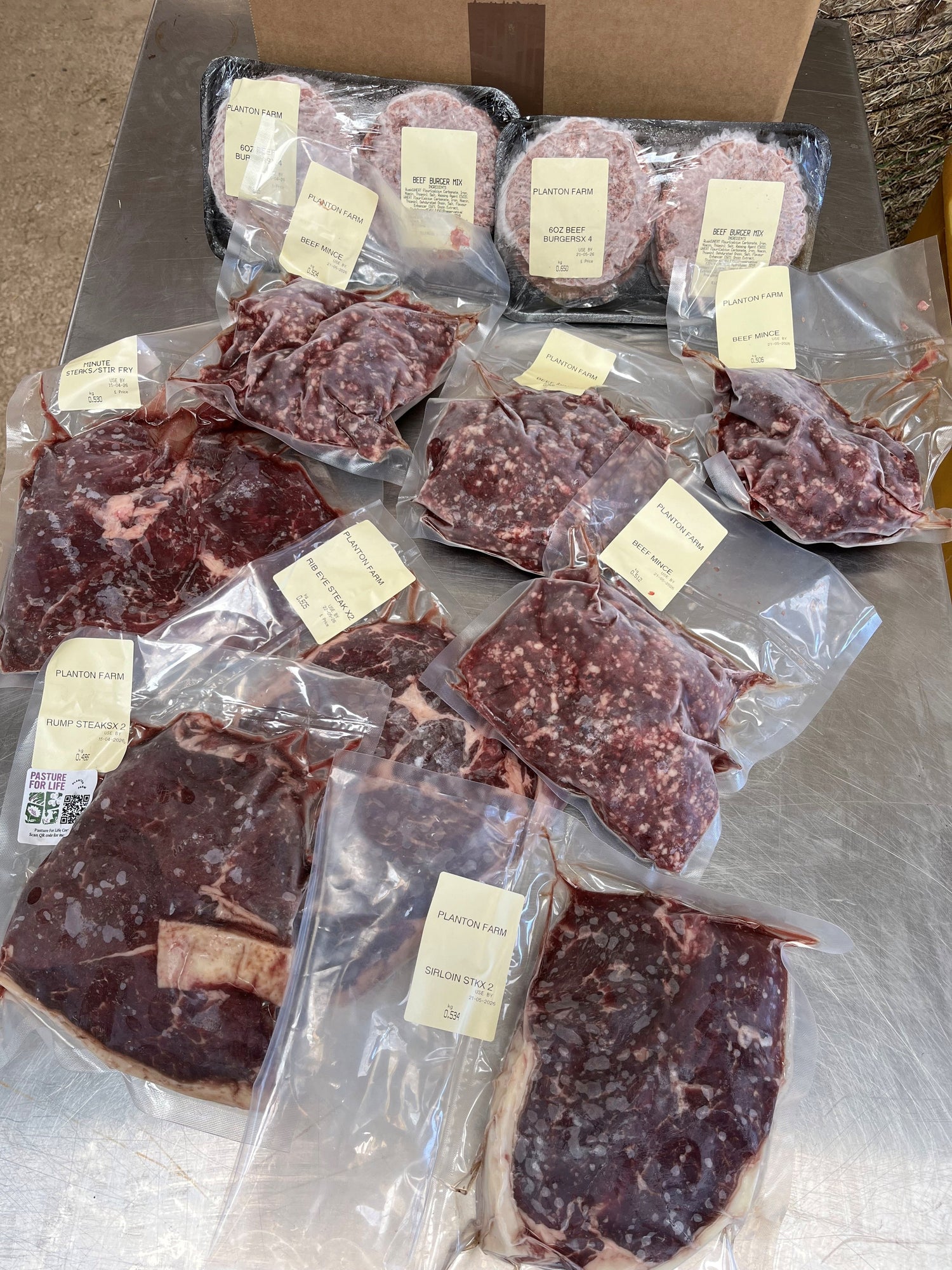
About
At Planton Farm, we are at the forefront of regenerative agriculture. Our farm thrives on a foundation of soil health, animal welfare, and ecosystem regeneration, offering a range of products and services designed to foster a sustainable future.
We sell our produce directly to customer and work with local shops and cafes, ensuring that our community has access to nutrient-dense, ethically raised food.
Whether you're in search of delicious, local food or seeking expert insights into the world of regenerative farming, we invite you to join us: together, we can cultivate a nourishing future for our planet.
-

Market garden produce
Beyond our farm produce, Planton Farm is a hub for learning and innovation in regenerative farming. We host immersive workshops and farm tours providing hands-on experiences that inspire and educate. Our initiatives are designed to share the principles of resilient regenerative farming with a wide audience, from aspiring farmers to eco-conscious citizens.
We are also known to have developed the Roots to Regeneration transition accelerator program in collaboration with experts in the field. This initiative is tailored to support individuals and organizations in designing and implementing their own regenerative systems, contributing to a broader movement towards sustainable agriculture.
Mission
To explore the art of what’s possible with agroecology, regenerative livestock and perennial farming to grow nutrient dense food in the UK. As part of a food system transformation which is urgently needed, we seek to activate change for people, animals and planet. We look to a future that nourishes people physically, mentally and emotionally, moving towards holistic and circular systems and away from industrialised, extractive ones.
Our team
Contact us-

Clare Hill
Learn more about ClareClare Hill is a practising regenerative farmer and the driving force behind Planton Farm in Shropshire. Clare manages the day-to-day running of the farm, overseeing the production and direct sale of pasture-raised, nutrient-dense meat. She leads the Roots to Regeneration Transition Accelerator, supporting farmers and food businesses on their journey to regenerative agriculture.
-

Rupert Hill
Learn more about RupertRupert Hill has overseen the complete renovation of Planton Farm, transforming the house, buildings, and farm infrastructure—including fencing the entire farm.
-

Annie Rayner
Learn more about AnnieAnnie is a specialist in farm animal welfare and brings her understanding of the needs and wants of livestock into the world of regenerative agriculture.
-

George Paton-Philip
Learn more about GeorgeGeorge joined the team in May 2023 after graduating from the Royal Agricultural University with a degree in Conservation & Countryside Management.
-

Ruth Layton
Learn more about RuthAn investor, food producer and founder of sustainable food consultancy FAI Farms, Ruth is also the founder of sankalpa, an organisation that supports innovators to become change-makers









